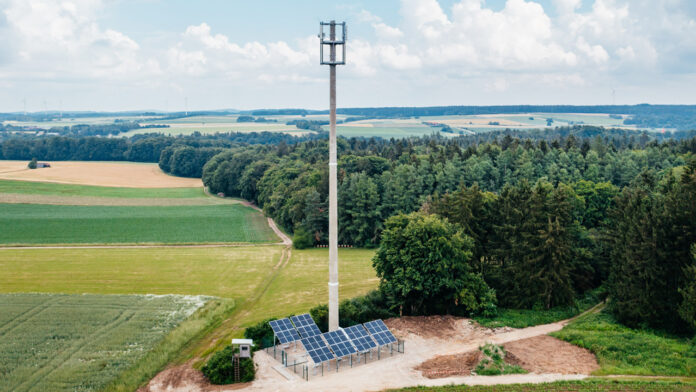O2 Telefonica said that the new site has been deployed in Bavaria
German operator O2 Telefónica has put into operation the first mobile site that operates completely independently of the general power supply.
The site has been deployed in the small town of Sindlbach, in the Neumarkt district in Upper Palatinate, Bavaria region. Photovoltaic modules and biomethanol fuel cells supply the newly erected transmission mast with sustainable energy.
“With the energy-self-sufficient locations, we are able to supply even rural and remote regions with a fast mobile network where a conventional power supply is lacking or would be too expensive. We rely on green electricity and high energy efficiency. This is how we close the last white spots in a sustainable way. Sindlbach in Bavaria is symbolic of modern mobile phone coverage in rural areas,” said Mallik Rao, chief technology and information officer at O2 Telefónica.
There are around a dozen cell phone masts across Germany whose power supply is supported by photovoltaic systems, the telco said.
In October 2023, O2 Telefonica had announced the launch of its 5G Standalone (SA) network in the country under the 5G Plus brand. Until this launch, the German telco had been offering 5G services through the NonStandalone (NSA) 5G architecture partly via its LTE/4G core network.
The carrier noted that the new network will enable customers to have access to voice-over-new-radio (VoNR) technology, which enables them to make calls with even better voice quality over the 5G network.
O2 Telefónica said it has already been using the 5G SA technology in 5G campus networks for companies and public authorities since 2020. With this new launch, the company noted that more companies in different sectors such as industry, healthcare and the public sector will have access to improved connectivity.
The carrier’s 5G Plus uses frequencies in the 700 MHz, 1.8 GHz and 3.6 GHz bands.
The telco said it expects its 5G SA service to reach full coverage in Germany by the end of 2025.
Last year, O2 Telefónica and Ericsson had completed a proof of concept (PoC) with the aim of paving the way for the development of 5G cloud RAN technology in Europe.

